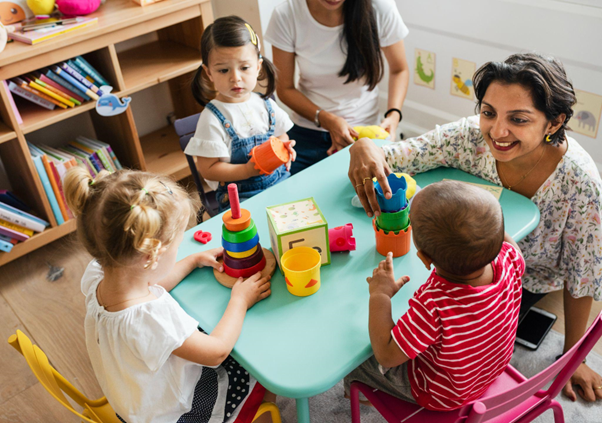Every parent has their own ideas about how to raise a child, but there’s one thing many agree on—the best age to join a preschool. While most children start preschool between ages 2 and 3, there’s no one-size-fits-all answer; every child develops at their own pace. That’s why it’s not always best to follow what everyone else is doing. Instead, focus on your child’s readiness. In this article, we will discuss the factors that indicate that your little one is ready for preschool. We will also explore the benefits of enrolling your kid in a preschool at the right age. But first, let’s see what the right age for preschool is.
What is the Right Age for Preschool? Is There a Specific Preschool Age Group?
We often look for a simple, one-size-fits-all answer to “What is the right age for preschool admission?” But the truth is, there isn’t one. While many preschools accept children as young as two and a half, that doesn’t necessarily mean every child is ready. Moreover, age is just one part of the puzzle. Children grow and develop physically, emotionally and socially at their own pace. That’s why it’s important to look at the bigger picture.
Most children begin preschool between the ages of 2 and 3, but there’s no fixed rule. The right time to start is when your child shows signs of being ready for a preschool environment—regardless of what the calendar says.
Factors that Demonstrate Your Kids is Ready for Preschool
So, you’ve decided that your child is appropriate for playschool. Before enrolling them, you might wish to check this list and see if you tick most of the boxes before making that decision.
- Potty Trained Yet?
- Does Your Child Interact Well With Other Kids?
- Following Instructions
- Health Matters
- Separation Anxiety
- Can Your Child Communicate With Others?
- Is Your Child ‘Routine’ Ready?
- Inquisitiveness
Some preschools want kids to be potty trained. That’s because diaper changing can be messy and time-consuming. Moreover, it might hamper the health and hygiene of other children. Potty training also shows a child’s growing independence and ability to manage basic self-care tasks.
While preschool is not where social interactions will be developed, you must ask yourself, ‘Is my child social at all’? Preschoolers need to be comfortable playing with other children; interaction and cooperation will form a huge part of their preschool lives.
While preschool doesn’t have too many rules, your child needs to be able to follow simple instructions like cleaning up after themselves and walking in line with other children.
Another key consideration when brainstorming pre-kindergarten age is assessing if your child is ‘health-ready’. If they are constantly falling sick (especially with ear infections and bronchitis), you might wish to defer preschool entry until their immunity is a tad stronger.
Going to school should be a largely joyous experience, and if your child can’t bear to be a few hours apart from you daily, it’s probably not the appropriate preschool age for them yet. The very last thing you want is for them to have a meltdown. This is where children who transition from daycare to preschool find it easier.
Unbeknownst to you, you might only understand the quirks of your child’s communication. It’s imperative that teachers in preschool can understand them, too. The right preschool age is when your child will at least be capable of rudimentary communication with teachers and other children. That way, they will not end up frustrated and devoid of an enjoyable nursery experience.
Instructions are one thing, but routine drives the art of listening up a few notches. Playschools have a timetable that enforces this ‘sense of routine’: playtime, snack time, circle time, etc. The good news is children of this age thrive on routine. So, it’s not a bad idea to inculcate in them a sense of routine in the now.
Curiosity and an interest in books, stories, and learning new things are strong signs that your child may be ready for preschool. These traits reflect healthy cognitive development, as curious children are eager to explore and understand the world around them.
When your child enjoys listening to stories, it helps build their vocabulary and early language skills, which are essential for learning. It also shows they can focus for longer periods—an important ability in a classroom setting.
In addition, being engaged in stories or learning activities often involves interacting with teachers and other children, which supports the development of social skills like sharing and cooperation.
Looking for bedtime stories for your little one? Check out our blog, 30 Bedtime Stories For Kids: Ignite Imagination And Bond With Your Little Ones. For more insights on your little one’s learning and development, visit EuroKids Blogs.
Conclusion
There isn’t one specific method for deciding the right age for preschool. Most likely, you won’t need to take extra measures. Your child will naturally start showing signs that they’re ready. When that time comes, consider visiting a EuroKids Preschool near you to give your child the perfect start to their learning journey.
With over 1700+ centres across three countries, EuroKids is committed to providing a nurturing and engaging environment for early learners. Just search “Preschool near me” to find the nearest EuroKids Preschool!
















